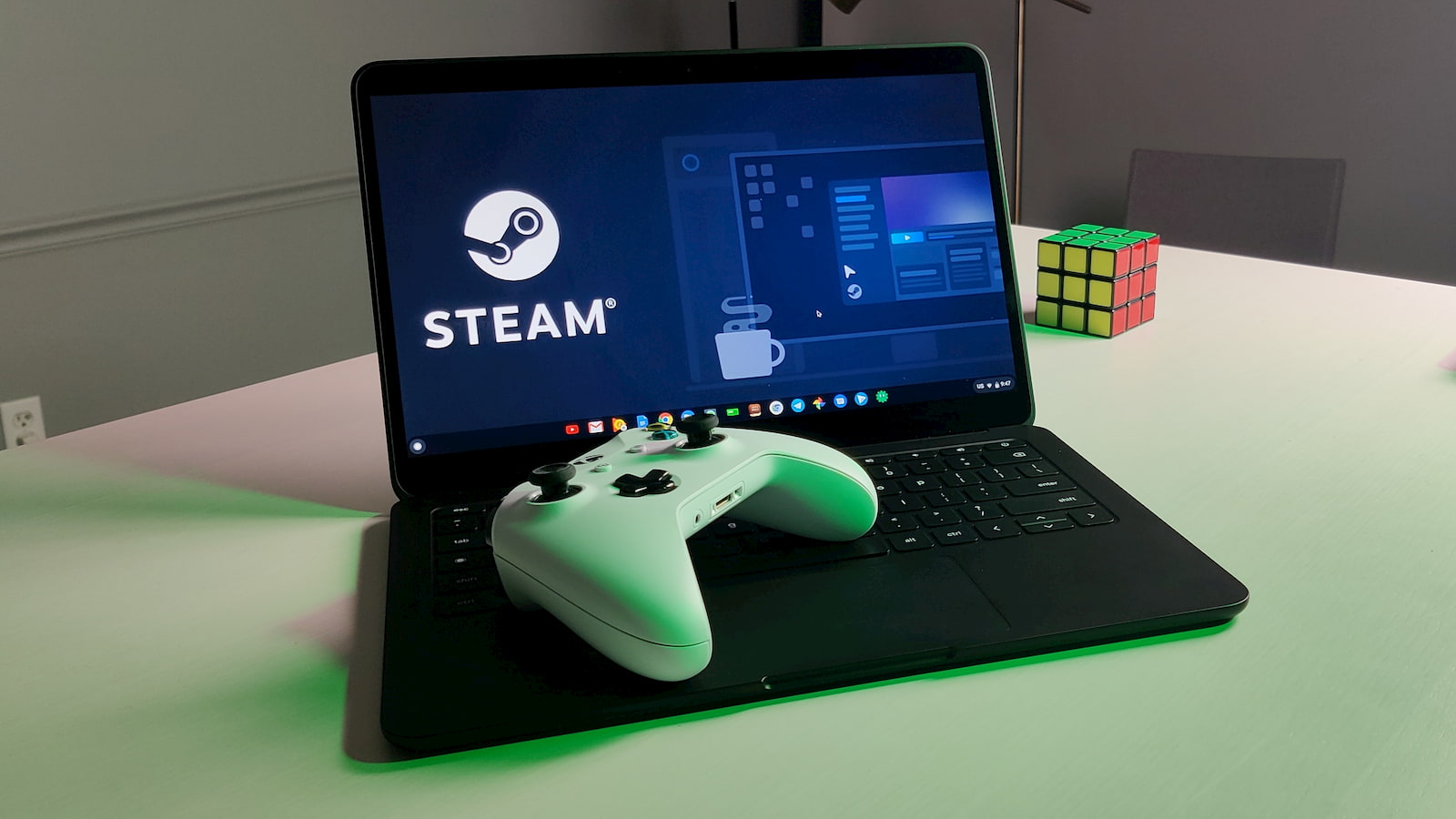
For months, we have been digging and theorizing about exactly how Google and Valve would bring “official” Steam support to Chrome OS. Based on conversations with Google’s product manager for Chrome OS, the developers at Google were working closely with Valve to build a Steam package that would leverage the same container technology use by Crostini which is used to deliver Linux apps to Chromebooks. I quickly presumed that this would mean an installation package for Steam that would simply install via .deb package or a terminal command in the native Debian Linux found on Chrome OS. It appears that I was wrong.
Back in May, Valve announced the Beta program for the company’s new streaming platform, Steam Cloud Play. While this could be a plausible and future-proofed method for Steam games on Chrome OS, the program is still in the early stages of beta and it is unclear at this point whether or not developers are jumping on board. I still believe that Google and Valve could shift their focus to getting Steam games on Stadia but right now, the method by which we will access the Steam platform is definitely going to utilize containers but it looks like Crostini may not be part of the solution at all.
Borealis
Over at 9to5Google, Kyle Bradshaw has unearthed some new commits surrounding the Steam/Chrome OS effort and at the center is a new project dubbed ‘Borealis’. So, what the heck is Borealis? Well, the answer to that is somewhat vague at this point. If you poke around the interwebs, you’ll find countless software projects that are branded Borealis and some of them even involve could platforms and virtual machines. This would make sense considering this entire effort revolves around Chrome OS and a new way to bring Steam to Chromebooks. If the Borealis in question has anything to do with streaming services, this would actually lend weight to my theory that Stadia could host Valve’s software. That said, I don’t think that Borealis has anything to do with the cloud or Stadia-like streaming. As a matter of fact, Kyle actually discovered an obscure Linux distro that goes by the name Borealis.
Even more interesting is the fact that Borealis OS is a distro that is built off of Ubuntu and is designed specifically with Steam and gaming at its core. According to the out-of-date Source Forge page for Borealis, the distro is “focused on performance and gaming. Performance tweaks and customizations worked in from the kernel.” The features list even includes Steam and as Kyle points out, Steam’s necessary files come pre-installed in the Linux distro along with these other, key features.
- Fast
- Secure
- Performance
- Steam
- Gaming
- Content Creation
- VR Support
- Built-in VPN
Shop Best Chromebooks of 2020 So Far on Chrome Shop
Sounds a lot like an operating system designed specifically for gaming, right? This discovery led me down a new path that left me with more questions than answers. First, why have I never heard of Borealis OS? If you look up lists of popular Linux distros, Borealis is nowhere to be found. Not only that but as I mentioned above, the Source Forge page for the project has not been updated since 2018 and you can’t even download the source files from the site. I spent a few hours looking around for more information on Borealis OS in the hopes of being able to actually install it like Kyle did but it was all in vain. No dice. Why would Google choose to use such an obscure distro to bring Steam to Chrome OS? Don’t get me wrong. It sounds like Borealis was tailor-made for this very thing and Valve clearly states that Ubuntu is the best platform for Steam but Borealis might as well be a ghost. It’s really not more than a tweaked version of a Budgie desktop with Steam files pre-installed. You could do this with any Ubuntu build if you wanted to.
My next question, which is the one that many outlets have touched on, is “why the move back to Ubuntu just for Steam?” The Crostini container was updated to Debian back in March and there hasn’t been any mention or hints that that would change in the future. Then I remembered that Crostini isn’t the only game in town. Nope, your Chromebook technically has two containers running on it if you use Linux applications alongside Android apps. The current ARC++ method of delivering Android apps happens, in part, inside of a container. Developers are also implementing a new method of Android app delivery referred to as ARCVM which will use the same “Termina” VM(virtual machine) that is used for Crostini. To dumb it down, Termina is simply the virtual machine that spins up the container for the application or even operating system that is selected by the user. In this case, the container is being labeled Borealis. In one of the recent commits, I discovered that termina command that will be the trigger for the container. Presumably, this function will be done behind the scenes when a user fires up the Steam application but the manual command runs in crosh could look something like this: vmc start termina --borealis
Back to my question. Is this a Ubuntu container? I have no idea but I don’t think that it has to be. Steam will run on Debian but inside the Borealis container, it doesn’t really matter what OS environment is available. I say this because I also found code specific to Chrome OS that refers to an installer script for Steam that is labeled crostini-steam-setup.sh. If you have attempted to install Steam lately on a Chromebook, you’ve likely encountered some missing dependencies that cause the application to crash or not run properly. This script contains all of those dependencies which should allow for a one-click install of Steam on Chrome OS whether it be in a container using Debian or Ubuntu.
All of this leads me back to the title of this article. What is Borealis? At this point, it’s really anyone’s guess. Until we actually see the Steam application and its delivery system in the flesh, the “OS” it uses is a mystery. While it could very well be Borealis Linux, I have a different theory and anyone who plays Half-Life has probably already arrived at this idea. Borealis is a boat. More specifically, Borealis is a research vessel created by the Aperture Science Laboratory. (The same Aperture from the Portal games)

The vessel contained a mysterious and powerful weapon and after vanishing, it found its way in and out of the Half-Life series of games and has even been teased in the long-awaited Half-Life: Alyx prequel. Throughout the multi-game series, Borealis is hinted at being the tool necessary to finally defeat the Combine. The Borealis namesake even spawned a still-in-the-works player-created Half-Life 3 game titled the Borealis Project. My point? I think that the Borealis reference in the Chromium repository is nothing more than a nod to the research vessel and its importance to Half-Life and Valve’s legacy. I could be totally wrong but that’s my take. What do you think? Is there more to this story? Drop a comment below. P.S. The cake is a lie.
Source: 9to5Google


Leave a Reply
You must be logged in to post a comment.